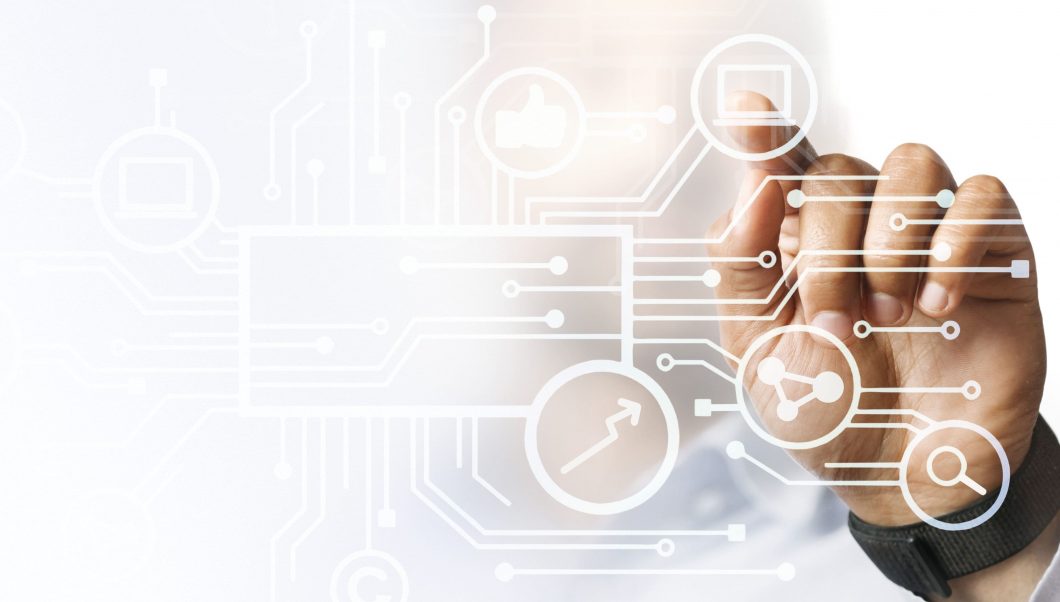
Since the past decade, the pace of tech disruption has significantly grown with the increasing applications of technologies like AI, ML, and IoT. The global pandemic has only accelerated the wave of tech disruption by creating the demand for innovative and dynamic solutions.
Companies are constantly experiencing the need to innovate faster while keeping up with customer expectations so as to stay competitive. According to McKinsey, businesses adopted digital solutions 25 times faster than their own estimates during the pandemic.
In this blog, we will explore how IT firms are helping customers thrive during this period of rapid change and what they should do to prepare for further disruptions.
Leveraging Cutting-Edge Technologies
One of the key ways IT firms are allowing their clients to overcome tech disruption is by leveraging cutting-edge technologies like Artificial Intelligence (AI), Machine Learning (ML), and the Internet of Things (IoT). These technologies enable IT organizations to create innovative solutions that can address problems quickly and efficiently.
-
Artificial Intelligence & Machine Learning
AI technology is used to automate manual processes, while ML algorithms provide a way to analyze large volumes of data at high speeds. A survey has revealed that 72% of business leaders believe AI gives a focused edge on scaling enterprises. The AI market is expected to grow from $89 billion in 2022 to $407 billion by the end of 2027.
With the help of AI and ML, IT firms offer several solutions like customer segmentation and targeting, fraud detection, inventory management, behavior prediction, product recommendations, testing software, and many more. These solutions can enable their clients to maximize the value derived from their data.
-
Natural language Processing
Natural Language Processing, or NLP, is a subfield of AI that deals with analyzing and generating text and speech. IT companies leverage NLP to allow their clients to offer customized customer support services by using conversational bots. These bots can understand natural human language and respond accordingly.
In addition, tech companies are leveraging NLP to develop solutions like voice biometrics, automated content moderation, and sentiment analysis. With the rising application of NLP, its market capitalization is compounding at a CAGR of 18% and is projected to grow from $26 billion in 2022 to $161 billion by 2029.
-
Internet of Things
The Internet of Things (IoT) is another technology that IT companies are using to help their clients overcome tech disruption. Reports suggest that by the time we reach 2030, there will be about 30 billion IoT-connected devices.
IoT solutions enable IT firms to build connected systems which gather real-time data for their clients from any device in the network. Businesses can then use this data for predictive decision-making, such as identifying when a machine needs maintenance.
Additionally, these technologies are combined with existing business intelligence tools, such as analytics and reporting software, for deeper actionable insights into customer behavior.
IoT devices have applications across different industries. For example, IT firms are utilizing IoT with a combination of technologies like AI, ML, and cloud computing to offer improved healthcare services so that healthcare providers can monitor and treat patients remotely.
-
Cloud Computing
Cloud computing has been one of the most transformative technologies over the past decade. According to studies, the cloud computing market is currently worth $480.04 billion and is predicted to reach about $1.7 trillion by 2029.
Cloud solutions make it possible for IT companies to offer scalable and secure services that can be accessed from anywhere in the world. With cloud technology, tech companies can facilitate agile business operations by allowing their clients to scale their resources depending on their requirements.
Future-Proof Your Business: Prepare for Tech Disruption
Along with leveraging cutting-edge technologies, IT firms also need to be proficient in the tech that is set to transform the market in the coming years. This will allow their clients to stay ahead of the curve. Some of these technologies include:
-
Blockchain Technology
Blockchain technology is a distributed ledger system that can be used to store data in an immutable way. It is a decentralized form of record-keeping that makes it difficult for cybercriminals to breach confidential data. IT companies can leverage this cutting-edge technology to help their clients protect sensitive data from unauthorized access.
It can allow IT companies to offer services like smart contract creation, asset tracking, and digital identity management.
-
Web 3.0
Web 3.0 is the upcoming generation of the internet that has been designed to provide users with complete control over their data. It utilizes technologies like blockchain, AI, and ML to provide a better and more dynamic web experience than the current version of the internet. This will enable IT firms to offer web-based services that can be used to create secure digital ecosystems for businesses.
As Web 3.0 becomes more prevalent, IT firms will have to focus on developing decentralized applications powered by blockchain technology to deliver integrated functionality.
The market cap for Web 3.0 was estimated to be $1.36 billion in 2021 and is projected to reach $64 billion by 2029.
-
IPA
Cloud computing has been one of the most transformative technologies over the past decade. According to studies, the cloud computing market is currently worth $480.04 billion and is predicted to reach about $1.7 trillion by 2029.
Cloud solutions make it possible for IT companies to offer scalable and secure services that can be accessed from anywhere in the world. With cloud technology, tech companies can facilitate agile business operations by allowing their clients to scale their resources depending on their requirements.
Conclusion
Technology is constantly evolving, and IT firms must stay ahead of the curve by implementing cutting-edge technologies in their services. Blockchain technology, Web 3.0, and IPA are some of the technologies that have the potential to transform the market in the coming years. IT firms should invest in these new technologies and focus on developing integrated solutions that utilize these tech disruptions for better results.
At Mindfire Solutions, we understand the importance of staying ahead of the curve and preparing for the future. That’s why we are always working on new and innovative technology solutions that can help our clients thrive in an age of tech disruption. Whether it’s using artificial intelligence and machine learning to make better business decisions or harnessing Blockchain technology for enhancing process flow, we have a team of experts who can help with your every business needs.
If you are looking for looking to leverage cutting-edge technology to fulfill your business goals, contact Mindfire Solutions today.
